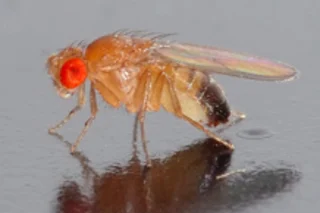Forgetting an umbrella or the location of a parking spot may be annoying, but scientists have suggested that for healthy brains to function well, they need to forget. By forgetting, scientists say, the brain makes space for new memories. In an intriguing breakthrough, researchers from the United States and China have identified the protein responsible for forgetting in fruit flies. By tweaking a protein called Rac, researchers were able
to speed up and slow down the erasure of painful memories [New Scientist]. The
findings were published in the journal Cell.
Scientists have been unable to pinpoint why people forget. Some have suggested that new memories are ephemeral and vanish over time, while others
thought that interference caused earlier short-term memories to be overridden as new information comes in [Science Daily].
While both of these notions seem to suggest that forgetting is a passive mechanism, the new study suggests that forgetting ...














